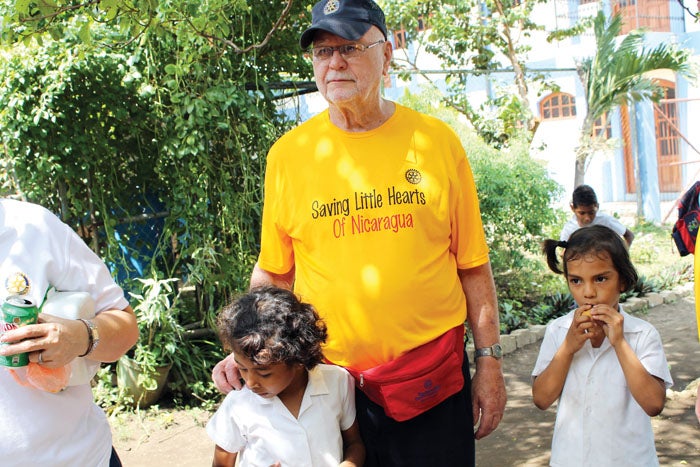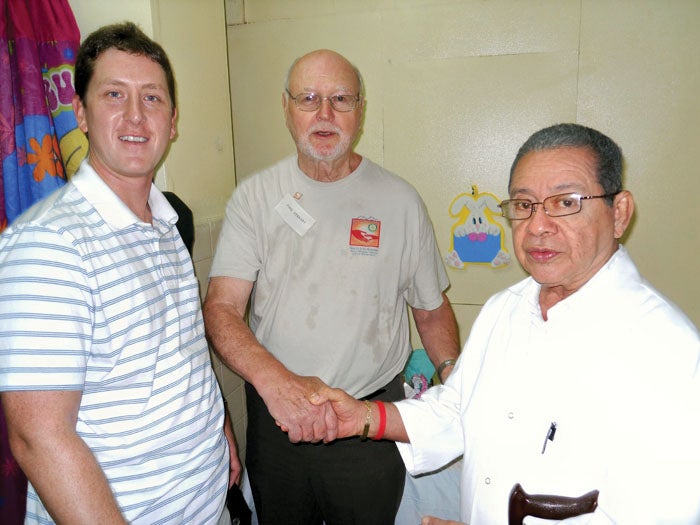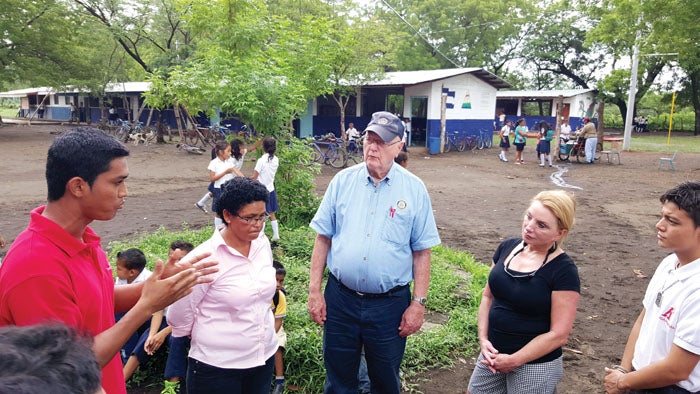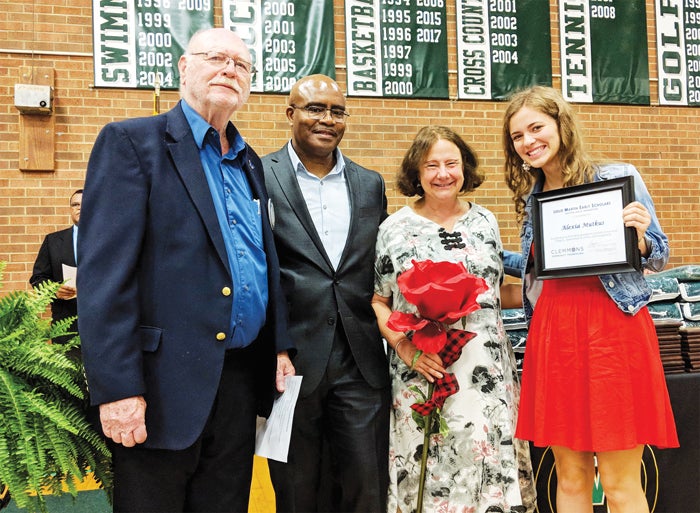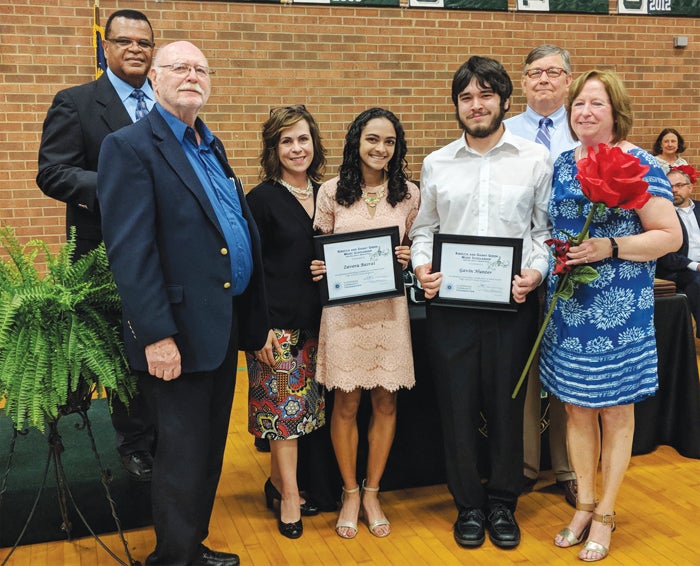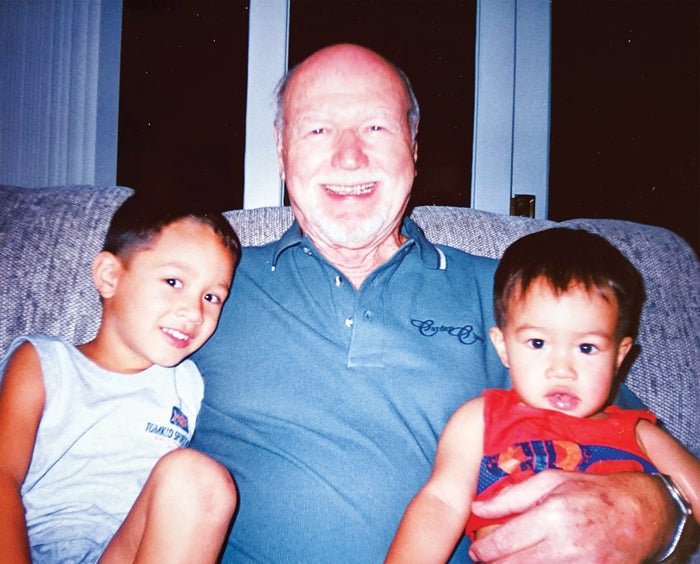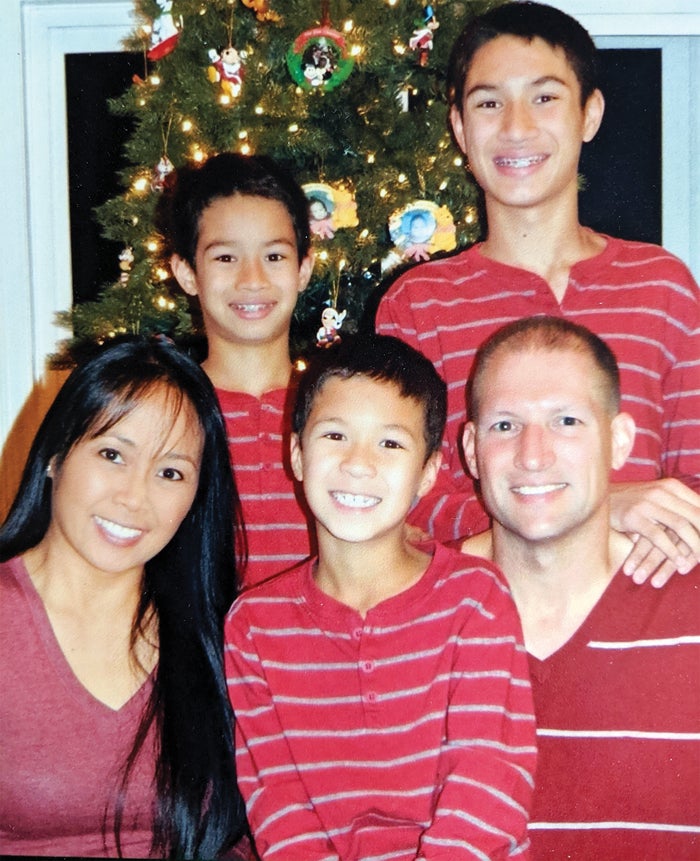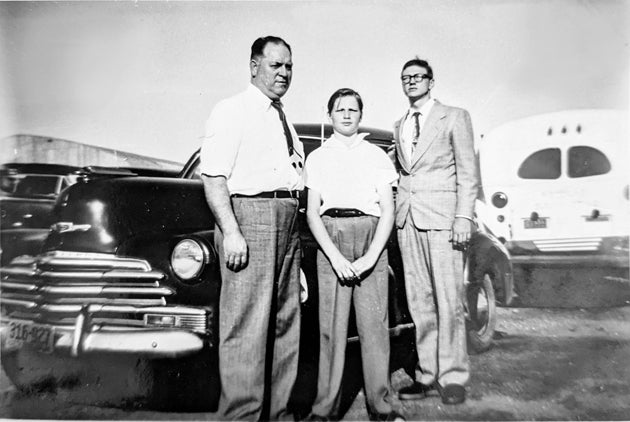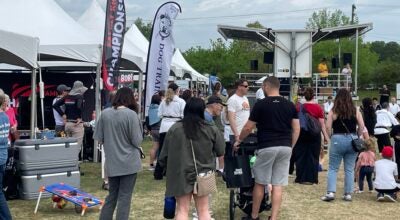Scholarship Series — Stewart has seen ‘miracles’ resulting from education
Published 12:10 am Thursday, March 25, 2021
|
Getting your Trinity Audio player ready...
|
Editor’s note: Each week, the Courier will be taking a look at local scholarships and the people they are named for.
By Sandi Scannelli
Clemmons Community Foundation
Clemmons Rotarian and local philanthropist John E. Stewart supports education because he has witnessed the “miracles” resulting from education, personally and around the world. “I’ve been to many countries and if they do not have an education, they don’t have a life.” He cites the efforts he helped to bring clean water to poor countries who lacked knowledge on basic hygiene. Stewart also believes in peace. “People have a choice to fight or work it out. If people are educated, then there is a better chance for peace.” His belief led to a major gift that endowed a Rotary International Peace Center scholarship at Duke University and UNC Chapel Hill. His philanthropy has largely been through Rotary International because “Rotary is on the ground” and he’s seen what Rotary can do through just simple solutions and education. Stewart says, “I have seen miracles happen with people because of education.” Fellow Rotarian and close friend, John Crouch, describes his generosity: “John Stewart does not give people a hand-out, but he wants people to have opportunities to succeed. His charitable giving, whether to Rotary, Camp Hanes, or Clemmons Community Foundation scholarships just reinforce that deeply held belief that he holds.”
Locally, John Stewart also endowed several scholarships in the names of dedicated teachers and benefitting graduating seniors at West Forsyth High School. His first scholarships were named after Leslie Martin, teacher of the Finance Academy and school liaison to the Clemmons Rotary’s Interact Club. “I was impressed with how she worked with students. I saw the respect they had for her and her genuine interest in them.” More recently, he started the Becky & Danny Green Scholarship, honoring two life-long music teachers and benefitting students who contributed meaningfully to the music programs at West Forsyth High School. Leslie Martin has come to know Stewart well, adding “what strikes me about John is his vision and his humanity. He can see beyond the day, the year, the decade to identify ways to help others. He is so interesting to talk to; he is always plotting, planning, thinking of ways that he can help other people. He’s worked hard all his life, and yet, he wants to give a hand up to others all over the world and in the community. He’s been such a supporter of West and our students. He’s amazing.”
Stewart’s own journey is testimony to his value for education and beliefs. A retired nuclear engineer, now 88, who holds several patents, Stewart grew up in Forsyth County. His grandfather owned a general store, C.L. Stewart & Sons in Waughtown. Stewart’s father had an eighth-grade education. When Stewart’s grandfather died, he gave the store to his two sons (including Stewart’s father) and the land to his daughters. Stewart laughs as he recalls how upset his aunts were to get land and not receive ownership in the store — a store that was carrying significant debt at the time. As a kid, Stewart remembers working in the store, putting Coke bottles in a carton, measuring sugar for bags, and other tasks a 6-year old could do. As he grew older, he worked in the meat market section and lunch counter. The first school Stewart attended was the McDonald’s School as a kindergartner. After school, he went to work at the store’s soda fountain. On weekends, Stewart went to his grandmother’s house where his aunts lived. They were Moravian and he remembers them dressed in long dresses and bonnets. On their farm, he learned to milk cows, feed the animals, and cook by his Aunt Connie. She and Stewart also sawed down trees for the wood stove in the kitchen — some two feet wide, and then hauled the wood back to the house by mule and wagon. These simple beginnings shaped how Stewart has lived his life, affirmed by John Crouch, “John is the most generous frugal person you will ever meet. He gives graciously to charity but does not like to spend money on himself or luxury comforts.”
John Stewart attended Forest Park Grammar school. He remembers “testing” the teachers, the discipline, and the teachers corresponding with his parents. There was a mutual admiration between parents and teachers. High school was a big change and initially, he did not apply himself. Then one day a teacher — Daisy Lee Glascow — called him into the office and gave him the book “How to Win Friends and Influence People” by Dale Carnegie. Stewart recalls, “The book changed my life.” Stewart played in the band after high school classes, followed by work in the family businesses. He had no time for sports and remembers the weight of his school and family work commitments. After graduation, his father wanted to help him to go to college. Eager to be independent, Stewart refused their financial support. He worked every summer at Western Electric, splicing cables to raise enough money for the next year at N.C. State, where the total cost of tuition, board, and meals was $1,100 a year. Stewart started in civil engineering courses, but quickly lost interest. He switched to industrial engineering and while he had an “A” in the class, he still was not interested in the field. Discouraged and deciding he wanted to flunk out, he asked his counselor to give him the hardest course they had. He enrolled in nuclear engineering and loved it. He fully enjoyed the challenge of classes and especially the freedom of college — freedom from the labor and structure of every hour of his upbringing. Stewart felt he was “born again” in college, was active in many school clubs, and immersed in learning, carrying 21 credits a semester. Under the atmosphere of learning, Stewart became inventive — about everything, including helping his pastor find strategies for increasing student attendance at church. Stewart admits he was most interested in attracting women from neighboring colleges to church.
When he graduated, Stewart had several job offers, including an offer from Pratt & Whitney in Connecticut. He remembers that he wasn’t crazy about “going north” and he jokes how his colleagues in Connecticut needed an interpreter to understand him. Stewart had several job changes over his career — some he initiated because he did not see a future in the field and others due to corporate divestitures and reorganizations. He was drawn to the jobs that required inventive thinking, problem-solving, and new market opportunities. Through it all, he had the chance to live in different cities throughout the U.S. and travel to different countries, work with foreign business and government, and experience the culture. “Every time I lost a job, the next opportunity was better.” He learned “you can’t have growth without a crisis and every crisis is an opportunity.” One of those opportunities led to his proudest accomplishment — being involved in launching the first nuclear reactor in space by the U.S. in 1964. When Stewart retired in 1992, he returned to North Carolina to the family farm and saw another opportunity — to start a Christmas tree farm, which became very successful.
As a parent, he ensured that his son, Dean, had an opportunity to pursue a degree … and his three grandchildren. Now, Stewart is helping other students obtain a degree or credential to give them the opportunities he experienced.
Stewart’s advice to students today?
- “Take advantage of the people that teach you.” Stewart can still recall the name of every teacher that inspired and guided him.
- “Work hard.” Stewart’s ability to help others as a philanthropist today was the result of hard work, work that started when he was a kid and became an ethic he embraced throughout his life in everything he chose to do.
- “Give capitalism a chance. Not many countries are good with income opportunity. In this country, you can be an entrepreneur and have a real opportunity to earn. I did that with my Christmas tree farm. I saw an opportunity, had a good place to grow trees, and used the capitalistic system to become an entrepreneur.”
Life wasn’t easy for Stewart — times were hard growing up. “We faced hardship by becoming entrepreneurial.” From hardship, to education, to nuclear engineer, to entrepreneur … and now helping others discover their own “miracles” through education.
To learn more about and/or apply for the Leslie Martin or Becky & Danny Green Scholarships of the John E. Stewart Fund, go to ccf.gives/scholarships or contact Greg Keener, program officer for additional information at greg@clemmonsfoundation.org.
Sandi Scannelli is president and CEO of the Clemmons Community Foundation.


